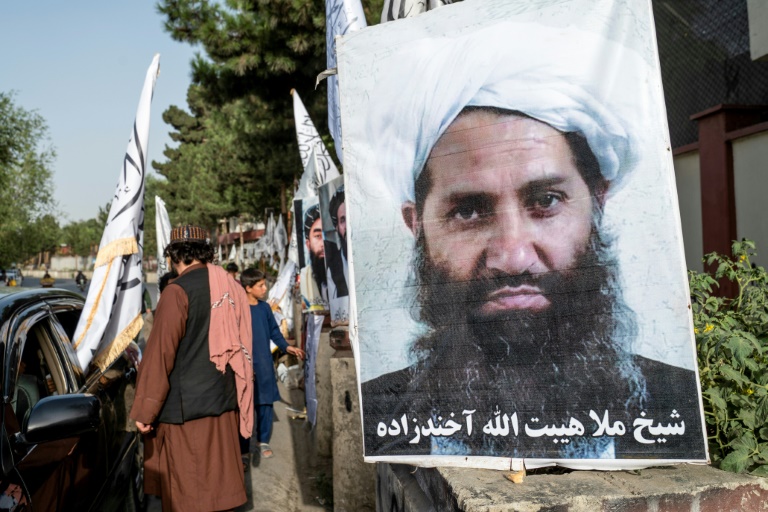The new US administration is spotlighting its first priorities in the Middle East. US President Donald Trump spoke to Saudi Crown Prince Mohammed bin Salman on Wednesday, the first phone call with a leader in the Middle East, according to reports.
This is important because it also comes as the US is re-designating the Iranian-backed Houthis as terrorists. Taken together, this can be seen as returning to the pillars of policy of the first Trump administration when Saudi Arabia was a close friend, and the Houthis were seen as terrorists.
It should be recalled that the Biden administration sought to take the Houthis off the list of terrorist groups in the region. This was despite the fact that the Houthis never moderated or changed their policy. After the Hamas attack on Israel, the group began attacking Israel and attacking shipping. This has wreaked havoc in the region. In recent months, the Houthis stepped up their attacks on Israel with numerous ballistic missile attacks on Israel.
Trump designated the Houthis as a terrorist group on January 22 via executive order. The executive order refers to them as Ansar Allah. “This order sets in motion a process by which Ansar Allah, also known as the Houthis, shall be considered for designation as a Foreign Terrorist Organization, consistent with section 219 of the INA (8 U.S.C. 1189),” the White House statement notes.
It says the group is backed by Iran’s Islamic Revolutionary Guard Corps Quds Force (IRGC-QF) and says that Iran has trained and armed the Houthis. It says the group has fired on US Navy warships “dozens” of times in the last two years.
“Since seizing most Yemeni population centers by force from the legitimate Yemeni government in 2014-2015، the Houthis have launched numerous attacks on civilian infrastructure, including multiple attacks on civilian airports in Saudi Arabia, the deadly January 2022 attacks on the United Arab Emirates, and more than 300 projectiles fired at Israel since October 2023.
The Houthis have also attacked commercial vessels transiting Bab al-Mandeb more than 100 times, killing at least four civilian sailors and forcing some Red Sea maritime commercial traffic to reroute, which has contributed to global inflation,” the executive order notes.
The order goes on to say that the US will work with “regional partners to eliminate Ansar Allah’s capabilities and operations, deprive it of resources, and thereby end its attacks on U.S. personnel and civilians, U.S. partners, and maritime shipping in the Red Sea.”
A long history of conflict
The new designation has raised eyebrows in the Gulf. It should be recalled that the Houthis tried to take over Yemen’s port of Aden in 2015, and this triggered an intervention by Saudi Arabia and other countries. However, the civil war in Yemen, with the Saudis on the side of the government against the Houthis, became a difficult war.
The Houthis targeted Riyadh with ballistic missiles and attacked Saudi Arabia with drones. Iran used this as a test bed for its missiles and drones. Eventually, a ceasefire was signed, and the countries involved in the war all sought to distance themselves from it. They also felt the US and the West were not being supportive enough.
Now, voices are rising that say that the new order by the White House could isolate the Houthis and weaken them. According to experts who spoke to the UAE media Al-Ain Al-Akhbariya, “disastrous repercussions will befall the Houthi militias following this classification, including the group losing its participation in a comprehensive peace process, and it will allow the Yemeni government and its regional and international allies to make a decisive military decision to end the coup.”
For the first time in a while, there is optimism. Al-Ain quotes Yemeni politician Khaled Salman, who said the designation is “a prelude to dismantling the Houthi entity attached to the Iranian body, and a prelude to the process of breaking the last nail and depriving Iran of waging war to defend it through tools.”
Salman told Al-Ain that the classification is “a blow to the Houthis who practiced three-dimensional trade, blackmailing major shipping companies, smuggling weapons to terrorist groups, collaborating with them, and striking at the interests of the West and the economies of Washington’s allies from Saudi Arabia to Egypt.” This is a step toward dismantling the group.
This may be too optimistic a belief, but clearly, the White House is putting wind in the sails of the region. It is part of a wider effort of the new Trump doctrine, which is designed to bolster friends and allies.
The new US Secretary of State, Marco Rubio, spoke with Israeli Prime Minister Benjamin Netanyahu and discussed the importance of deterring Iran. Gulf media sees this as another pillar of Trump’s policy, designating Houthis and backing Saudi Arabia and Israel. These are important moments.
Saudi Arabia is celebrating the tenth anniversary of King Salman assuming power this week. Meanwhile, Riyadh has also indicated it could invest up to $600 billion in the US, according to a report in the Associated Press about a phone call with Trump.
Other issues are in motion in the region. Steve Witkoff, Trump’s special envoy, is expected to come back to the region soon. He may visit Gaza to see the ceasefire up close, according to reports. His recent comments in an interview with Fox News have raised eyebrows in some pro-Israel circles. What is important now is that the ceasefire deal continues and hostages continue to be released on time.







